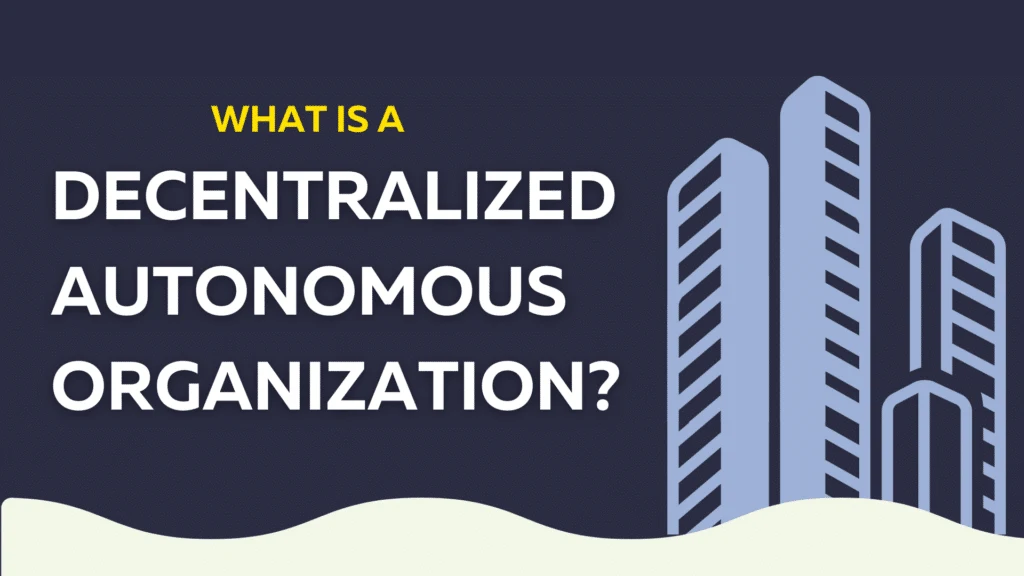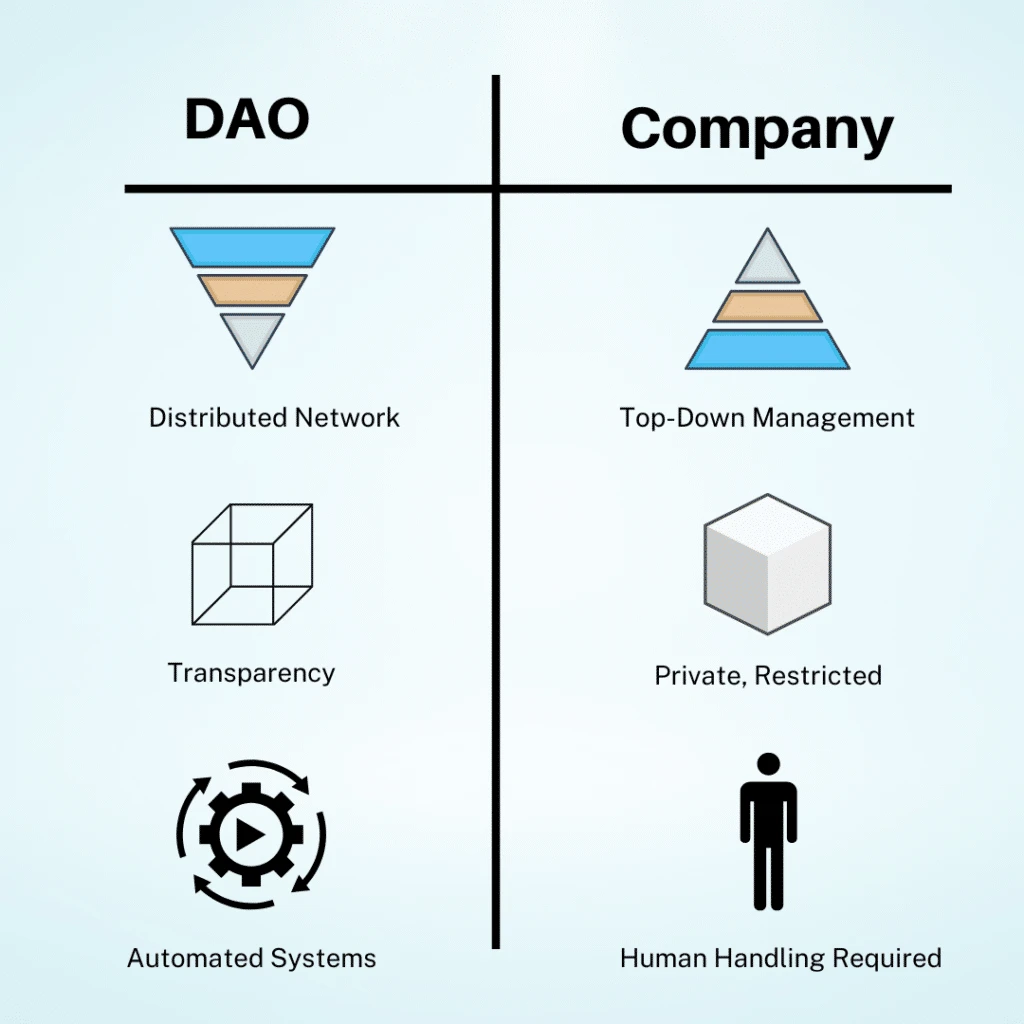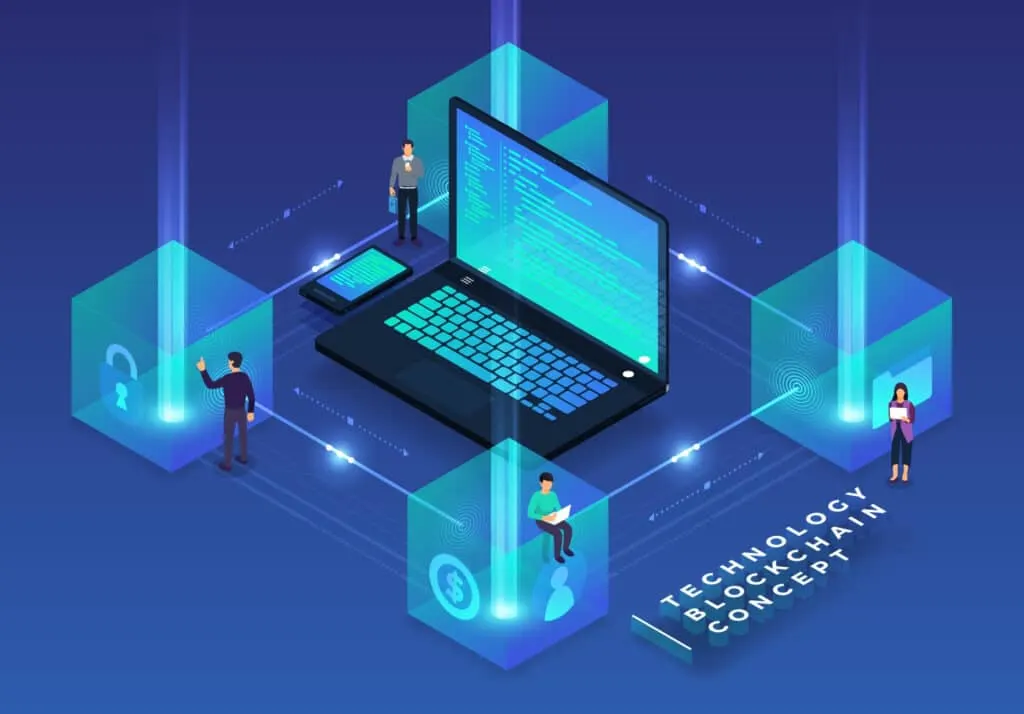What is a Decentralized Autonomous Organization (DAO)?
Most companies and organizations are run by bosses and managers and boards of directors who make all the decisions. A decentralized autonomous organization does not.
A DAO is a company or organization in which everyone is able to vote on decisions about what it will or will not do. There are no leaders calling the shots. That is what the D in DAO stands for: Decentralized.
Additionally, DAOs issue their own cryptocurrency and people who own this cryptocurrency get to vote on new proposals.
Smart contracts are necessary for the DAO to operate. Smart contracts automate transactions and eliminate the need for a middleman like a bank. As such, that is what the A in DAO stands for: Autonomous.
So, for example, a banking DAO would use smart contracts to approve loans or help customers save money. The only thing people do is act like the board of directors.
So a DAO is a Decentralized (everyone votes) Autonomous (because it uses smart contracts) Organization.

The Long Definition:
Decentralized autonomous organizations (DAOs) are a new type of organization that combines blockchain technology, smart contracts, and token ownership to operate autonomously and return benefits to its members.
It is important to realize DAOs do not have to be companies. They can be a wide variety of entities depending on their use. In fact, companies are the exact thing DAOs try NOT to be. This is because most companies are hierarchical. Decisions are usually made by leaders who might have their own interests in mind. But DAOs work differently. They aim to democratize decision-making by involving everyone who has the DAO’s token.
Whatever a DAO does is automated through smart contracts. So, if a DAO was set up to be an insurance company, there would be a smart contract that determined the rates, another smart contract that paid out claims, and so on.
Another way to look at a DAO is as a decentralized organization that has its business logic programmed into the blockchain. This means that the organization is governed by rules written in code, not based on the whim of a CEO, for example.
How does a DAO work?
DAOs are very flexible. There are a lot of different use cases. Some DAOs act as hedge funds, which is a way for people to pool their cryptocurrency or purchase expensive NFTs.
A DAO works based on the principle of democratic governance. For example, a DAO set up as a crowdsourced venture capital fund allows you (the general public) to contribute by purchasing tokens.

After you have purchased tokens, you can submit proposals to the group. Proposals are put to vote by the members of the group, including you!
If a proposal is accepted, the funds are released to the person or team that proposed the idea and the team works towards the desired outcome. In the case of a start-up, the team has 90 days to prove that the idea is viable. If the idea is not realized within this time, the funds are returned to the members and the team.
If the team has fulfilled its promise, the product is either released or the service is delivered. Then funds are distributed back to the members based on the percentage of tokens each person owns through a liquidation contract that holds the funds until they can be released.
Why are DAOs becoming popular?
Some people prefer DAOs because they operate without a central authority. The DAO’s members can vote on proposals, but the company’s operations are automated by smart contracts.
This means that there is no need for intermediaries and the company can operate with less overhead costs. Since the organization is not subject to government regulation it can exist in any jurisdiction.
In addition, the day-to-day functions of a DAO are not subject to normal human decision-making. Instead, decisions are made based on the code.

3 Real World Examples of DAOs
The DAO
This is the first-ever DAO. It was built entirely on the Ethereum blockchain. It had no employees and was governed by a group of stakeholders who had voting rights. Initially, The DAO was meant to fund other blockchain projects. Unfortunately, in June 2016, the organization was hacked due to a flaw in its smart contract code. The organization lost $50 million of its funds and was forced to shut down.
Maker DAO
Launched in 2017, MakerDAO is, today, one of the most popular DAOs. It is built on Ethereum to govern a lending protocol that issues overcollateralized stablecoin loans in a decentralized manner. The DAO’s governance token is the Maker (MKR) token.
Dash
Dash is a DAO that has its own blockchain. It has a peer-to-peer network that allows its users to send money with low fees. It is controlled by its network of users who operate the network and keep it up and running.
Arcade City
Arcade City is part ride-sharing app, part grassroots initiative.
How to Create a DAO
Creating a decentralized autonomous organization is not easy. Unquestionably, there are strict rules that ensure a fully decentralized organization.
These rules include designing the organization to be self-governing, having clear communication channels, and assigning roles and responsibilities to individuals within the organization.
Furthermore, a lot of planning goes into the design of a DAO. Ironing out all of these details is important because the rules and coding need to be approved so smart contracts can be created.
One of the most popular ways to do this is through the creation of a whitepaper – an all-in-one document that explains the setup, tokenomics, structure, and more. People use whitepapers to get a better understanding of a DAO, dApp, or other projects before they decide to invest or get involved.
